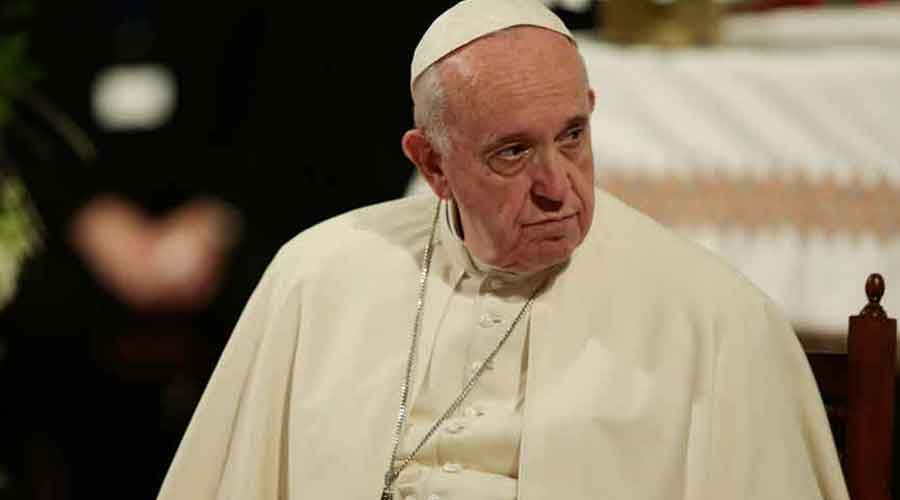Pope Francis on Wednesday compared the war in Ukraine to the “terrible Holodomor genocide” of the 1930s, when the policies of the Soviet dictator, Joseph Stalin, caused a devastating famine in Ukraine.
The pontiff’s comparison of Moscow’s attacks on civilian targets in Ukraine to Stalin’s decision to let millions in Ukraine starve represents one of his strongest condemnations yet of the Russian invasion. “Let us pray for peace in the world, and for an end to all conflicts, with a special thought for the terrible suffering of the dear and martyred people of Ukraine,” Pope Francis said during his weekly general audience in St. Peter’s Square.
“And let us think of war-torn Ukraine.” The pontiff then asked that people join Ukraine this Saturday in commemorating “the terrible Holodomor genocide, the extermination by the hunger of 1932-33 artificially caused by Stalin”.
“Let us pray for the victims of this genocide and let us pray for all Ukrainians, the children, the women and the elderly, the babies who are today suffering the martyrdom of aggression,” he said.
Ukrainian historians argue that Stalin, as head of the Soviet Union, used a famine brought on by the Soviets’ forced collectivization of farms to crush Ukrainian aspirations for independence.
The famine began in Kazakhstan and southern Russia but was most devastating in Ukraine, where entire villages were left to starve. The pope, in previous comments, has called Ukrainian victims of the war martyrs, but the comparison with the Holodomor appeared to be his strongest yet. In the early months of the conflict, Francis upheld the Vatican’s longstanding policy of not taking sides, even as he deplored the violence, with the goal of facilitating a peace agreement. Yet he has recently stepped up and sharpened his rhetoric.
He has urged the faithful to pray for “martyred” Ukraine. The pope has also often warned against the reckless risk of using nuclear weapons and the uncontrollable global consequences that would cause, a clear reference to Putin’s statements suggesting the use of nuclear weapons was a possibility. For months after the February 24 invasion, the pope appeared to walk a fine line.
He studiously avoided naming Putin, or even Russia itself, as the aggressor, even as he called for the violence to stop and raised his voice against “unacceptable armed aggression” and the “barbarism of killing children.” His neutrality, however, drew criticism from Ukraine, especially when he said that Daria Dugina, a 29-year-old Russian ultranationalist close to Putin who had supported the invasion, was assassinated in August. Francis called her an “innocent” victim.
“The madness of war,” Francis said at the time. “The innocent pay for war — the innocent! Let us think about this reality and say to each other, ‘War is madness.’” Ukraine’s foreign minister summoned the Vatican’s ambassador to Ukraine to express “profound disappointment”.
After that, Francis changed tack. On August 30, the Vatican for the first time said that Russia was the aggressor in the war, condemning Moscow’s invasion in strong terms. “As for the large-scale war in Ukraine, initiated by the Russian Federation, the interventions of the Holy Father Pope Francis are clear and unequivocal in condemning it as morally unjust, unacceptable, barbaric, senseless, repugnant and sacrilegious,” the Vatican said in the statement.
The pope had also avoided criticism of the war’s chief religious backer, Patriarch Kirill of the Russian Orthodox Church. In May, however, he warned Kirill not to “transform himself into Putin’s altar boy”.
(New York Times News Service)











